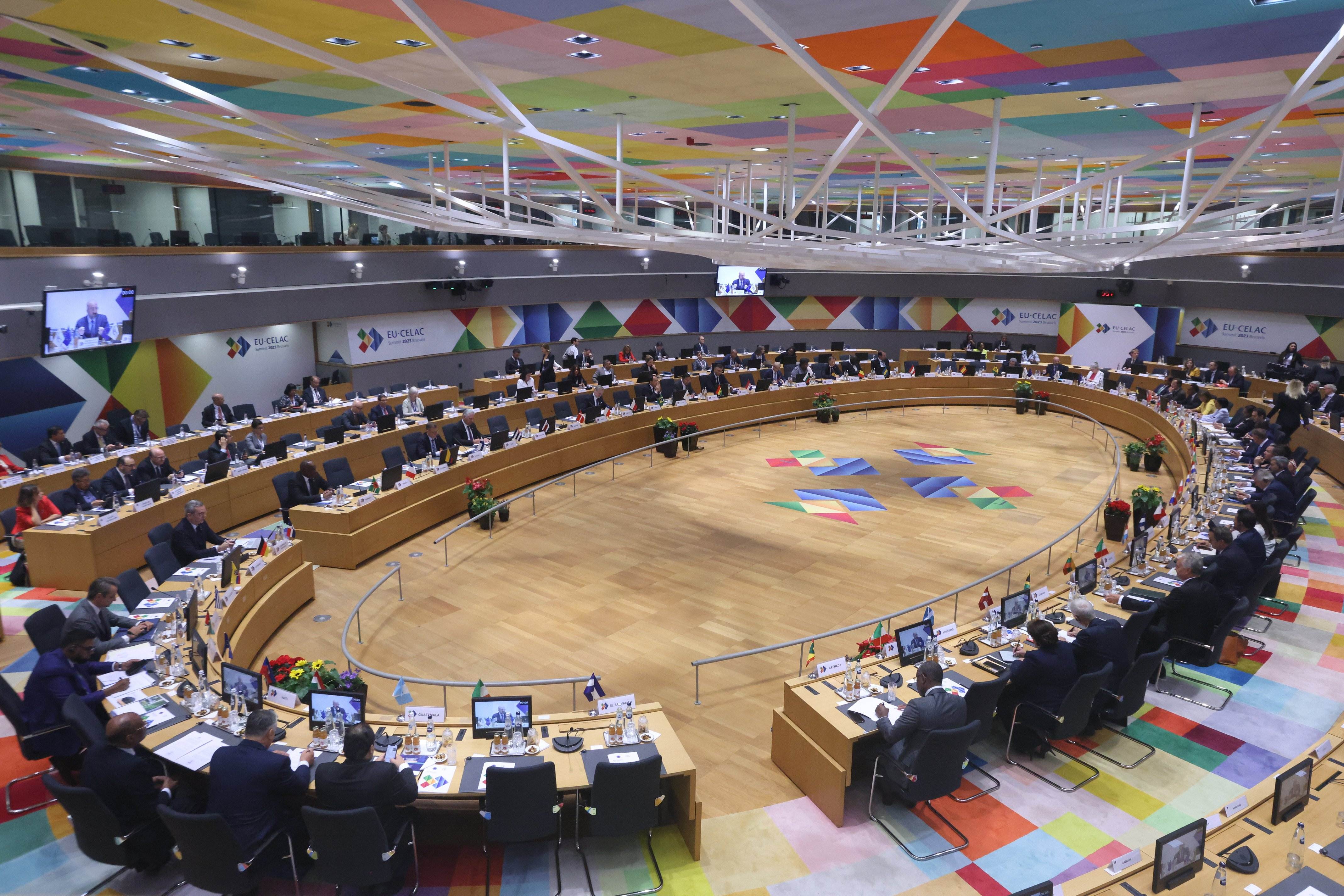Spain slips up again. This Wednesday, another meeting of the General Affairs Council of the European Union has been held, at which, once again, reference was made to the possibility of incorporating Catalan, Basque and Galician as official languages in the European institution. But debate on this matter on the meeting agenda lasted barely two minutes. The Spanish government was responsible for the problem, since it only shared its new proposal on the officialization of the three languages with the rest of the EU member states on Monday evening, a day and a half before the meeting on Wednesday, a fact which generated irritation among the other representatives.
European diplomatic sources present at the meeting - which during this point was not open to the media - explained that only the Spanish secretary of state for the EU, Pascual Navarro, who also presided over the session, took part. In the absence of acting Spanish foreign minister, José Manuel Albares, who did not travel to Brussels for the occasion, Navarro outlined the new Spanish proposal to the rest of the partners without receiving any reaction. No other representative had anything to say at this point on the situation of the request to make the three languages official. "There were no comments", sources present in the room told the ACN agency. No vote had been expected on the issue this Wednesday, but Spain's slip-up meant that not even minimal progress was possible.
At this Wednesday's meeting, it was expected that a 'state of the question' would be given on the progress towards official status of Catalan, Basque and Galician. But this was not possible because the Spanish government only sent its new proposal to the community partners this Monday night, and only in Spanish, thus making it difficult to analyze the plan carefully in time for today's meeting. This was stated publicly this morning by the Finnish foreign minister, Anders Adlercreutz, in a media interaction before the General Affairs meeting. "We received the Spanish proposal on this issue on Monday evening and in Spanish. We haven't had time to look at it," said the Finnish minister.
The Spanish proposal: six conditions
In any case, the tailor-made proposal presented by the Spanish state for the Catalan, Basque and Galician languages, seeks to secure the support of those member states that may have reluctance to allow official status for the three languages out of fear of a domino effect that could end up requiring the inclusion of other minority languages in the European Union. Spain's new proposal would add an annex to Regulation 1 of the Council of the European Union, under which the linguistic regime of the European Economic Community, as it was then, is set, and would establish six essential conditions for any language to be included subsequently: for it to be a language originating in a member state, to have constitutional recognition in a member state, be a working language in the national parliament, have been used for at least ten years in the EU institutions on the basis of administrative agreements, for the EU treaties to have been translated into these languages with a certified copy delivered to the Council, and for the state that requests the officialization to assume its cost.

